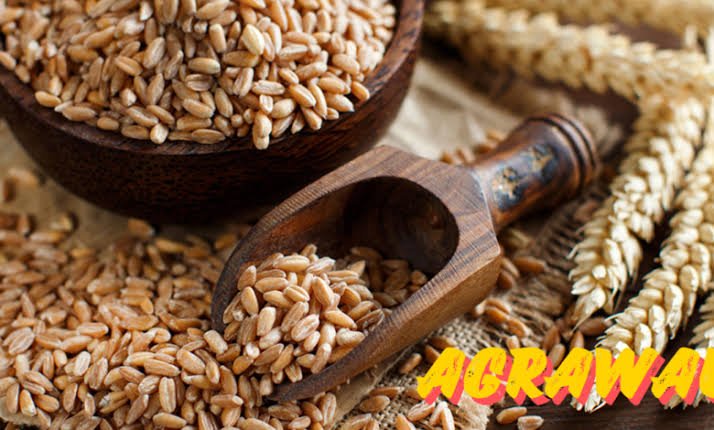Agrawau refers to a culturally rich and historically significant community or region that has evolved over centuries, playing a pivotal role in trade, politics, and cultural exchanges. The term is often associated with a group or location known for its unique traditions, craftsmanship, and social customs. The community’s historical influence is evident through its contributions to local economies, vibrant cultural festivals, and strong social cohesion, making it a subject of both academic and cultural interest.
The Geographical and Historical Roots of Agrawau
The origins of Agrawau date back to ancient times when the region or community was deeply involved in regional trade and cultural exchanges. Historically, Agrawau was known as a hub of commerce, contributing significantly to the local economy through its artisans and agricultural products. Over time, as political landscapes shifted and economies modernized, Agrawau adapted while still preserving its traditional values and practices. This evolution has allowed it to maintain relevance in today’s context, offering a blend of modern and traditional lifestyles.
Cultural Significance of Agrawau
Agrawau boasts a rich cultural heritage, deeply rooted in traditions that have been passed down through generations. These practices are expressed through festivals, rituals, and daily customs, which hold significant meaning for the community. One prominent example is the Agrawauan Harvest Festival, a yearly celebration that showcases traditional music, dance, and culinary delights, serving as a means for the community to reconnect with its heritage.
The arts play a crucial role in Agrawau’s cultural identity. From folk tales and songs to traditional crafts like pottery, weaving, and metalwork, artistic expression is a major aspect of life in Agrawau. The intricate designs in their crafts often reflect the community’s history and values, acting as living stories of their ancestors.
Preserving Agrawau’s heritage has become a central focus for community leaders and organizations. Initiatives aimed at safeguarding historical sites, cultural practices, and traditional arts ensure that future generations can appreciate and learn from this legacy.
Economic and Social Impact

Historically, Agrawau has been a vital player in the regional economy. Skilled artisans and agricultural producers supported local markets, and the community became known for producing high-quality handcrafted goods. Today, Agrawau continues to thrive by blending its traditional economic practices with modern methods. The production of handmade textiles and organic agricultural products is particularly notable, as these goods appeal to both local and international markets.
The social structure of Agrawau is characterized by strong communal bonds and a collaborative spirit. Mutual support among community members has been essential for navigating economic and social challenges. Community events and festivals foster a sense of belonging, further strengthening these bonds.
Challenges Facing Agrawau
Despite its many strengths, Agrawau faces several challenges. The pressures of globalization threaten to erode its traditional practices as younger generations are drawn to modern lifestyles. Balancing cultural preservation with contemporary influences is a challenge that the community continues to navigate.
Additionally, environmental concerns such as climate change and land degradation have impacted Agrawau’s agricultural practices, which are a key part of its economy. Addressing these environmental issues is critical for sustaining the community’s way of life.
Urbanization and migration also pose risks to Agrawau’s cultural identity. As more people move to urban centers for better job opportunities, there is a fear that the community could lose its distinct traditions and customs. Engaging younger generations and encouraging them to stay connected to their roots is essential for the survival of Agrawau’s cultural heritage.
Opportunities for Agrawau’s Future
In the face of these challenges, Agrawau also has numerous opportunities to thrive. Embracing technology offers a way for the community to promote and preserve its culture on a global scale. Digital platforms can be used to share the stories, traditions, and arts of Agrawau with a wider audience, ensuring that its cultural significance remains recognized.
Sustainable tourism is another avenue that can benefit Agrawau. By attracting visitors who are interested in experiencing its unique traditions and vibrant culture, the community can generate economic opportunities. Tourism can also foster cultural exchange and bring attention to the importance of preserving Agrawau’s heritage.
Local initiatives are playing a significant role in revitalizing Agrawau’s cultural practices. Community leaders and organizations are actively involved in efforts to promote awareness of the community’s rich heritage. These initiatives not only strengthen the bonds within the community but also instill a sense of pride in Agrawau’s identity.
Conclusion
Agrawau is more than just a community or location—it is a living repository of history, culture, and social values. With its roots deeply embedded in trade, craftsmanship, and strong communal ties, Agrawau has contributed significantly to local economies and cultural exchanges throughout history. While the community faces modern challenges, such as globalization and environmental threats, it also has opportunities to adapt and flourish. By embracing technology and sustainable tourism, and through local initiatives that foster cultural pride, Agrawau can continue to thrive while preserving its unique traditions.


